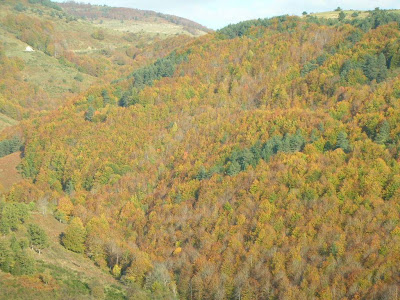Today is Sunday, the last Sunday of 2007. To mark the occasion the Catholic faithful are taking over the Plaza Colon in Madrid this morning for a mass gathering in favour of the “Christian family”. A live message from the Vatican will be delivered, from the personality so memorably described in Father Ted as “the old feller who lives in the art gallery”. So let us pray.
Dear Lord, we ask you to raise a mighty wind in the sea separating Iberia from the Canary Islands, so that the Bishop of Tenerife will not treat us to any of his homilies on how children provoke sexual abuse. May an equally mighty wind prevent the leader of the Legionaries of Christ from attending today’s service, due to his own difficulties with the same issue.
We also pray that the entire education budget of the nation be passed into our hands, so that no more will our innocent children be forced to become homosexual abortionists.
We beseech thee O Lord, not to allow any of our cardinals, bishops or priests ever to form any kind of relationship which permits them to belong to anything resembling the Christian family. May their children continue to be “nephews” and their wives “housekeepers”.
Finally, we pray that the red, secessionist, terrorist sympathising scum running the country be kicked out of office in March. May they be replaced by San Mariano and his faithful supporters who have wandered aimlessly in the wilderness for too long.
God bless you all.
Dear Lord, we ask you to raise a mighty wind in the sea separating Iberia from the Canary Islands, so that the Bishop of Tenerife will not treat us to any of his homilies on how children provoke sexual abuse. May an equally mighty wind prevent the leader of the Legionaries of Christ from attending today’s service, due to his own difficulties with the same issue.
We also pray that the entire education budget of the nation be passed into our hands, so that no more will our innocent children be forced to become homosexual abortionists.
We beseech thee O Lord, not to allow any of our cardinals, bishops or priests ever to form any kind of relationship which permits them to belong to anything resembling the Christian family. May their children continue to be “nephews” and their wives “housekeepers”.
Finally, we pray that the red, secessionist, terrorist sympathising scum running the country be kicked out of office in March. May they be replaced by San Mariano and his faithful supporters who have wandered aimlessly in the wilderness for too long.
God bless you all.



























